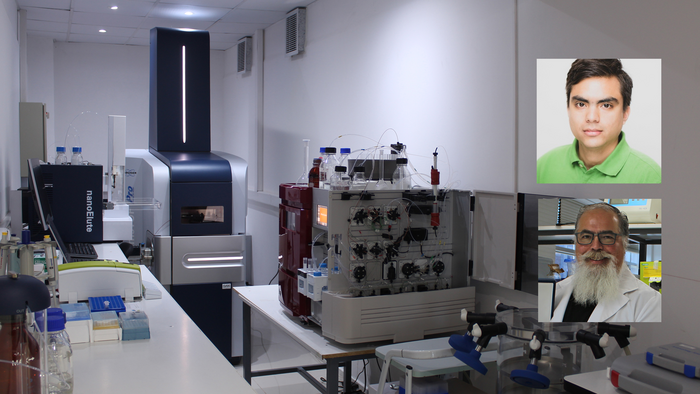Researchers from the Latin American and Caribbean Cohort Consortium (CC-LAC) developed a risk algorithm specific to the Latin American and Caribbean region. These equations include information such as age, cholesterol level, blood pressure, among others, in order to provide the probability that a person will have a cardiovascular disease in the next 10 years. The research was published in The Lancet Regional Health – Americas.

Credit: MELISA Institute
Researchers from the Latin American and Caribbean Cohort Consortium (CC-LAC) developed a risk algorithm specific to the Latin American and Caribbean region. These equations include information such as age, cholesterol level, blood pressure, among others, in order to provide the probability that a person will have a cardiovascular disease in the next 10 years. The research was published in The Lancet Regional Health – Americas.
To strengthen the prevention of cardiovascular diseases in Latin America and the Caribbean (LAC), risk stratification is essential. Despite the above premise, on the one hand, until now there were no cardiovascular risk scores for the LAC region, while, on the other, it was not known how well the actual risk among LAC populations represents risk scores based on European cohorts or from other regions. On the face of this, researchers grouped in the CC-LAC developed a cardiovascular disease risk score (including coronary heart disease and stroke) for fatal and non-fatal events, using pooled data from 9 prospective cohorts with 21,378 participants and 1,202 events.
Regarding the importance of this study, Dr. Rodrigo Carrillo, who coordinates the logistics of the consortium’s daily operations, analysis and publications, stated that: “to date, there was no specific cardiovascular risk equation for Latin America. There has been a specific risk score for decades in the United States, Europe, Asia, and various other countries around the world, but none that have been developed specifically for the Latin American region.””
To carry out this research, first, prospective cohort studies were identified from different countries to increase information from Latin America and the Caribbean, aiming at providing pooled results for the region as a whole rather than as specific countries. Then, the variables or components of the algorithm were defined, focusing on an easy-to-apply survey using widely available clinical variables such as blood pressure, weight or height. Finally, the risk score was adapted for 31 countries of the region, for which information from each country was used, and thus that it should be able to reflect the data or the clinical epidemiological profile of the population of each of these countries.
The risk score developed by the researchers of the CC-LAC has two main uses. The first one is in research that assess and evaluate the algorithm in other population groups, in countries for which information has not been previously available, under other contexts, among others, in order to have more information about its properties. Its second use is in clinical practice. For this, national and regional medical societies must technically evaluate this risk equation, finding its strengths and weaknesses, and thus recommend its use clinically.
On this second practical application, Dr. Carrillo explained that “risk scores are used almost every day, and that is because they help us decide the treatment or provide complementary information for the doctor to decide the treatment. For example, if a patient comes to the appointment, I apply this equation and this gives me a number. So, if the patient is more than 10%, 15%, or 20% at risk, I can offer him a treatment for that or I can perform a treatment for something else, if he has an intermediate range it can influence in healthier lifestyle changes… but in any case, equations help me to have a treatment attitude or to decide on a working plan with patients.”
Latin American and Caribbean Cohort Consortium (CC-LAC)
The CC-LAC is a grouping that emerged in 2019 in response to the need to know more about cardiovascular epidemiology in Latin America and the Caribbean. This consortium is composed of physicians, epidemiologists, health researchers, health professionals, and public health professionals from Latin America and the Caribbean, gathered together to search, compile, and collect cohort studies in the region that have information on risk factors and cardiovascular outcomes.
Cohorts in this consortium must have cardiovascular data from the general population of Latin America, such as the San Francisco Project cohort (SFP) a prospective study of cardiovascular risk factors conducted in Chile, at the small town of San Francisco de Mostazal. This cohort was first examined between 1997 and 1999, and then longitudinally followed for 15 years registering blood pressure, lipids and several other metabolic parameters, including different anthropometric measures of visceral obesity.
Led by senior epidemiologist Elard Koch, from MELISA Institute, the SFP cohort has produced numerous scientific reports on cardiovascular risk factors for instance, the SFP identified the waist-to-height ratio as an indicator of metabolic risk with high sensitivity and specificity for predicting all-cause mortality risk in the Chilean population. Regarding the inclusion of the SFP cohort data in the consortium, Dr. Koch pointed out that in the Chilean experience, the cut-off points for defining visceral obesity and mortality risk were population-specific and therefore, collaborating with Dr. Carrillo in the CC-LAC initiative was very important to recalibrate them. “It is very exciting and encouraging to see that SFP data continue being useful in a global context for cardiovascular health in Latin America,” said the Chilean epidemiologist.
The CC-LAC is actively seeking new members and new studies, focused on keeping on with the work to answer questions relevant to the region in the field of cardiovascular diseases and their risk factors.
###
Funding: Wellcome Trust (214185/Z/18/Z)
Participants: Cohorts Consortium of Latin America.
Journal
The Lancet Regional Health – Americas
DOI
10.1016/j.lana.2022.100258
Method of Research
Observational study
Subject of Research
People
Article Publication Date
23-Apr-2022




